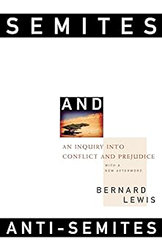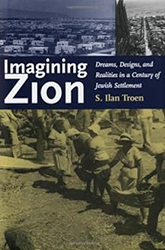
The tragic events in Israel/Palestine on and following October 7, 2023, spotlight a life and death struggle for control of sacred territory that is deeply rooted in different theological traditions. It is not just another contest by competing peoples and nationalisms, or another instance of geopolitical rivalry.
The struggle involves not only local Jews, Muslims, and Christians, but also worldwide faith communities whose interests and stake in what transpires are longstanding. Judaism and Christianity anticipated that God’s promises would be fulfilled at some undetermined time in the future and these beliefs were not suspended by centuries of defeat, exclusion, or absence from the land itself.
Islam saw fulfillment as self-evident and incontrovertible. In 636 CE the Umayyad Caliphate conquered Palestine and the land was part of its empire through World War I. For all these centuries of Islamic rule, theology concerning the Holy Land was largely dormant. However, the Jews’ determination to reclaim and rebuild their homeland, coupled with the sudden and unanticipated dissolution of the Ottoman Empire by European Christian states, shook the foundations of regnant theologies. Each had to reformulate traditional religious claims in secular terms suitable to the new reality and discourse of the contemporary world.
My book, Israel/Palestine in World Religions: Whose Promised Land?, highlights that despite the expectation that modernity would inexorably lead to secularization, religious culture retains its power. Since the twentieth century, universal terms superseded particularistic religious beliefs. Debates before international bodies and in the public square reference universal rights: self-determination, historical precedence and indigeneity, legitimacy through purchase, treaties, and labor. These concepts, common in academic fields, particularly in the social and political sciences and in law, predominate. Yet even in the new public discourse, contending theologies continue to echo and influence cultural memory, identities, and politics of both devout adherents and the avowedly secular. It was once imagined that a common universal language of shared values would clarify and mitigate or even resolve conflicts. That hope has not materialized in Israel/Palestine.
My point is not that religious belief systems are paramount. Rather, my new book demonstrates that secular and theological positions may be maintained simultaneously and are often interwoven. Debates in the public sphere typically reference human rights and international law, not citations from Scripture and arguments based on Divine promises. However, as Daniel C. Kurtzer, the former senior American diplomat and current professor at Princeton University, points out, the book elucidates the crucial role of religion that has generally been overlooked by policy makers.
A striking illustration is supersessionism, or replacement theology, that informs Christian and Islamic claims to primacy. Supersessionism comes from the belief that Jews no longer have an active role in history and so there is no basis for Jewish claims to Palestine/Holy Land. Divine or historical right of return has lapsed. This religious belief underwrites a parallel secular version of supersessionism: Zionism is colonialism and Israeli Jews are colonial-settlers, foreigners with imperial aims. Accordingly, only the Palestinian people have a unique historical, unsevered connection to the land. The historical record and millennia of vital Jewish connections are thus erased in this line of thinking. Violence against Jews who established a state on Palestinian Muslim land is both necessary and justified when placed within this argument.
To understand the conflict over the Holy Land we must recognize how tangled our longstanding religious beliefs are with seemingly neutral and universal secular arguments and beliefs.
This blending of the secular and theological is painfully evident in the discourse accompanying the 2023 – 24 war between Israel and Hamas in Gaza. In its charter and pronouncements, Hamas provides theological justification for murdering Jews and reclaiming all the land “from the river to the sea.” The chant that calls for the annihilation of Israel has been taken up in the secular public square, where liberal defenders of Hamas invoke international law to demand humanitarian aid for Gazans and Israel is tried at the Hague for alleged genocide. Israel invokes its legitimate right and obligation to defend its citizens and sovereignty. It identifies itself as a democratic state and presents evidence of stringent efforts to avoid collateral damage to civilians deliberately used by Hamas as human shields, arguing its behavior is like that of other states in similar engagements. At the same time, elements of Israel’s religious right cite Divine promises in their efforts to influence national policy. Listening here and at other points of this century-old conflict, one hears a cacophony of secular and theological discourses that are deeply entangled with each other.
As a historian, I do not hold to determinism. Theology does not make conflict and violence inevitable. At many points in the history of this conflict, choices have been made. Elements within Christianity and, more recently, Islam indicate accommodation to a Jewish state is possible. My point is that to understand the conflict over the Holy Land we must recognize how tangled our longstanding religious beliefs are with seemingly neutral and universal secular arguments and beliefs.
Mutual understanding demands interrogating the complexity of contrary claims on different levels. In the first part of the book, I explain when and how secular discourses achieved apparent priority over the theological in the public square. The next two major parts analyze the modern, secular discourse and the theological. My effort has been, as Boston College’s Lebanese-American scholar Franck Salameh observes, to treat “neglected religious foundations.” If we fail, he warns, we risk “ushering in yet another century of more-of-the-same in our future.” This book is an effort to address, not avoid, these difficult questions and to appreciate the complex context and intricate patterns of secular and religious beliefs that underlie the question: Whose Promised Land?
Recommended Reading
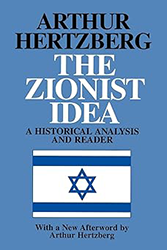
The Zionist Idea: A Historical Analysis and Reader by Arthur Hertzberg

1948: The First Arab-Israeli War by Benny Morris
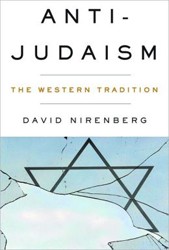
Anti-Judaism: The Western Tradition by David Nirenberg
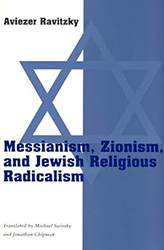
Messianism, Zionism, and Jewish Religious Radicalism by Aviezer Ravitzky
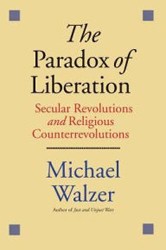
The Paradox of Liberation by Michael Walzer
S. Ilan Troen is Lopin Professor of Modern History, emeritus at Ben-Gurion University of the Negev, Israel, Stoll Family Professor in Israel Studies, emeritus at Brandeis University, USA, and founding director of the Israel Studies centers at both institutions. He is Founding Editor of the journal Israel Studies, and 2023 recipient of the Association for Israel Studies “Lifetime Achievement Award.”
